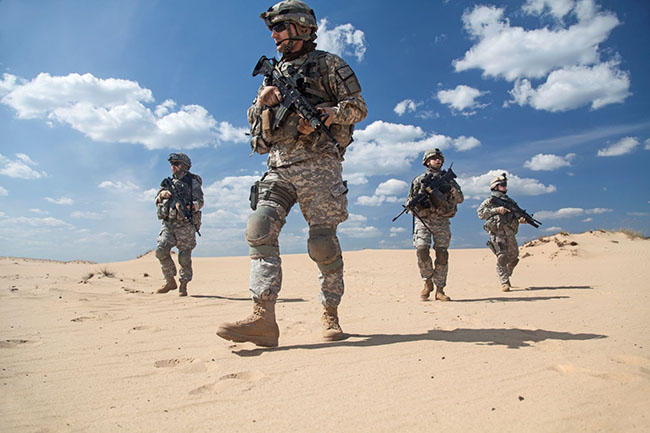Australia’s record in ensuring respect for the law of war is currently under particular scrutiny as a result of allegations of war crimes being committed in Afghanistan by Australian soldiers.
“The way in which the Australian military responds to the recommendations of the investigation by the Inspector General of the Australian Defence Force will be very telling” according to University of Queensland law researcher Dr Eve Massingham.
“This is not just in terms of any possible prosecutions, but also in terms of broader aspects of military practice.
“Other governments will be watching. How a country deals with violations of the laws of war within their own backyard is very relevant to the role they can play internationally in protecting those impacted by conflict.
 “The appointment by the Australian government of the Independent Oversight Panel and the work that they do around the broader response to the Inquiry relating to cultural and organisational change will be necessary to complement any criminal processes.
“The appointment by the Australian government of the Independent Oversight Panel and the work that they do around the broader response to the Inquiry relating to cultural and organisational change will be necessary to complement any criminal processes.
“Training the military on the laws and ensuring accountability, are important, but the approach must also be one that ensures that policy and culture give effect to the obligation to ensure respect. The Panel’s work must look at these measures at the domestic level.”
At the international level there are a range of different measures countries can and should be undertaken to give effect to their legal obligations in times of armed conflict.
These are outlined in Dr Massingham’s latest publication, Ensuring Respect for International Humanitarian Law, which she co-edited with former colleague Annabel McConnachie.
“These include supporting legal developments and United Nations actions that reduce suffering in times of conflict,” she said.
“Governments should look at strengthening their domestic laws to ensure activities that fuel conflict are not enabled by their country.
“Examples would include regulating the banking and investment sector to prevent the flow of financial resources to warfighting ends, and robust regimes for the import and export of weapons and their parts.”
The edited collection, which includes contributions from a number of leading experts in the field, shows what countries are doing across a range of areas such as humanitarian diplomacy, weapons law, humanitarian action, peacekeeping, the treatment of detainees and internally displaced persons and targeting rules in armed conflict.
It also considers topical issues such as the regulation of private actors, counter-terrorism and foreign fighting.
Contact: Dr Eve Massingham, e.massingham@uq.edu.au; BEL Faculty Media media@bel.uq.edu.au



